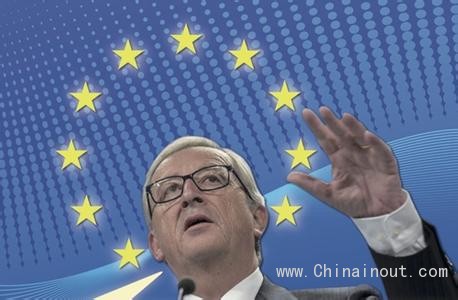歐盟(EU)官員表示,歐盟委員會(huì)(European Commission)主席讓-克洛德•容克(Jean-Claude Juncker)將披露一個(gè)規(guī)模達(dá)到3150億歐元的新計(jì)劃,,用于復(fù)蘇歐洲經(jīng)濟(jì),。這一計(jì)劃的啟動(dòng)資金為210億歐元,將依靠金融工程調(diào)動(dòng)大量私人投資,。
這個(gè)暫時(shí)命名為歐洲戰(zhàn)略投資基金(European Fund for Strategic Investment,,簡(jiǎn)稱(chēng)EFSI)的基金是容克本月上任以來(lái)的第一個(gè)重大舉措。那些處境艱難的歐盟國(guó)家已對(duì)它期待許久,。最近幾周,,這些國(guó)家的經(jīng)濟(jì)增長(zhǎng)預(yù)期已大幅下降。種種跡象表明,,歐元區(qū)經(jīng)濟(jì)正陷入停滯,。

EFSI將試圖通過(guò)少量公共資金,以杠桿手段吸引大量私人資本,。不過(guò),,在容克正式公布這一新的金融工具之前,它已在歐洲議會(huì)(European Parliament)和部分歐盟較弱經(jīng)濟(jì)體中引發(fā)了怨言,。
歐盟委員會(huì)官員堅(jiān)稱(chēng),,該項(xiàng)目建立在公共財(cái)政的穩(wěn)健原則之上。部分人還以歐洲投資銀行(EuropeanInvestment Bank)作為這種方法的成功案例,。目前,,歐洲投資銀行依賴(lài)的資本金基礎(chǔ)相對(duì)較小,卻籌集了大量私人基金,,用于向全歐盟的大型基建項(xiàng)目投入資金,。
在最新計(jì)劃的啟動(dòng)資金中,,160億歐元將來(lái)自歐盟現(xiàn)有預(yù)算,50億歐元將來(lái)自歐洲投資銀行,。根據(jù)計(jì)劃,,該資金將以保證金的形式,用來(lái)籌集私人基金,,從而投資于總價(jià)值估計(jì)為3150億歐元的較高風(fēng)險(xiǎn)項(xiàng)目,。今后,歐盟政府將能把自身現(xiàn)金放入該基金,,也就是說(shuō)總體數(shù)字還有可能增加,。
歐盟官員提醒說(shuō),該計(jì)劃要等到周二歐盟委員會(huì)全部28名委員批準(zhǔn)之后才算最后敲定,。雖然官員們表示目前的暫定名稱(chēng)仍然是“歐洲戰(zhàn)略投資基金”,,但這一名稱(chēng)也可能會(huì)出現(xiàn)改動(dòng)。目前,,容克定于周三向歐洲議會(huì)介紹該計(jì)劃,。(中國(guó)進(jìn)出口網(wǎng))
Jean-Claude Juncker will unveil a new 315bn plan toresuscitate Europe’s economy that will be built on21bn in EU seed money and rely heavily on financialengineering to mobilise private investment, accordingto EU officials.
The plan, tentatively named the European Fund forStrategic Investment, is the first major initiativefrom Mr Juncker since taking office this month andhas been eagerly anticipated in struggling EUcountries that have seen growth projections slashedin recent weeks amid signs the bloc is stagnatingeconomically.
The EFSI will seek to leverage small amounts of public money to attract large amounts ofprivate capital. That approach has already caused grumbling in the European Parliament andsome weaker EU economies even before the new vehicle has been formally unveiled by the newEuropean Commission president.
Commission officials insist the programme is built on sound principles of public finance. As amodel, some cite the European Investment Bank, which relies on a relatively small capital baseto raise private funds that are, in turn, invested in large infrastructure projects across the EU.
The seed money will include 16bn from the EU’s existing budget and 5bn from the EIB. It willcome in the form of guarantees and will be used to raise private funding that will be invested inhigher-risk projects worth an estimated 315bn, according to the plans. EU governments will beable to put their own cash into the fund, meaning the headline figure could rise.
Officials cautioned that the plan would not be finalised until the full, 28-member commissionendorses it on Tuesday. The name “EFSI” could also be tweaked, though officials said it remainsthe current working title. It is scheduled to be presented by Mr Juncker to the EuropeanParliament on Wednesday.
The EU budget funds would come from several sources, including the “connecting Europefacility” – a 30bn pot currently used to build infrastructure across national borders – andHorizon 2020, the EU’s 80bn research and development programme. EU budget reserveswould fill out any remaining needs.











